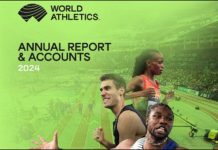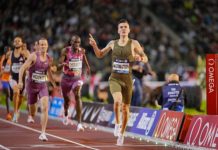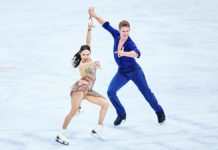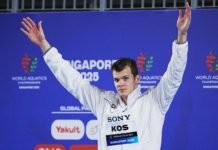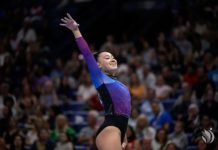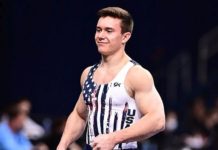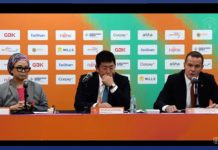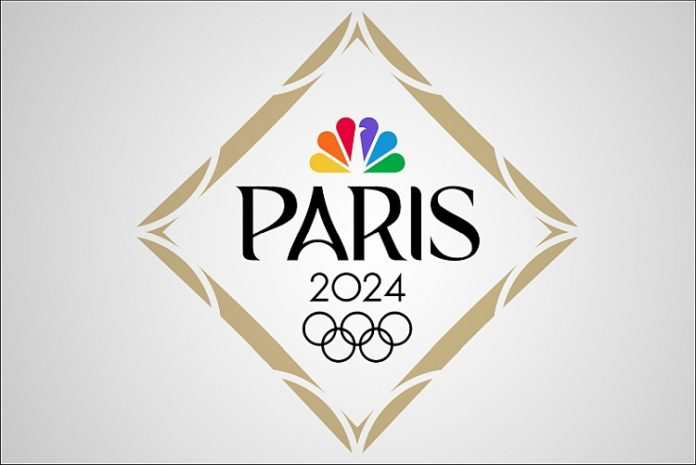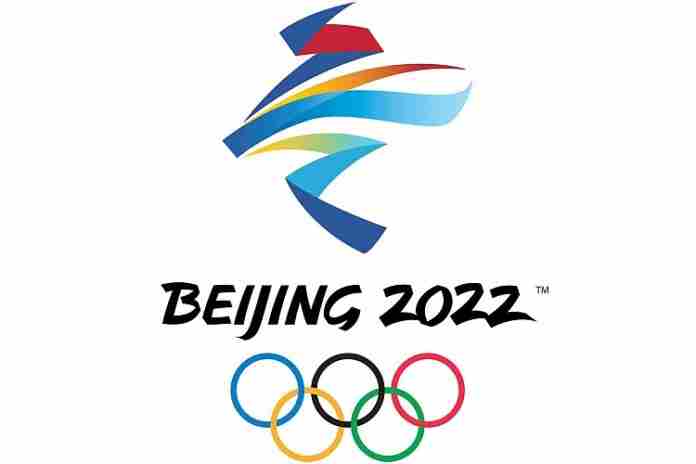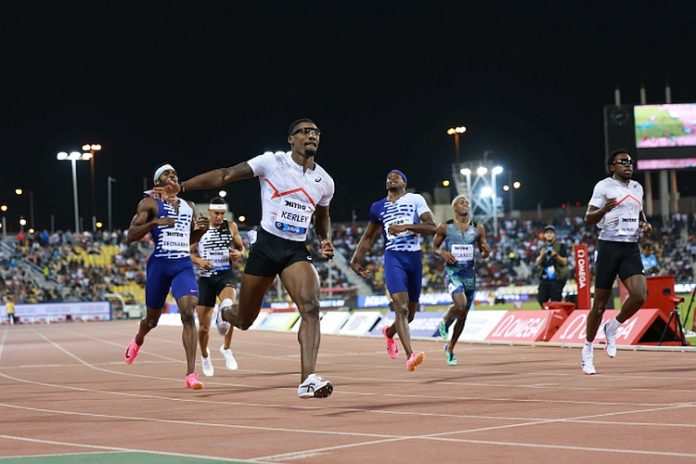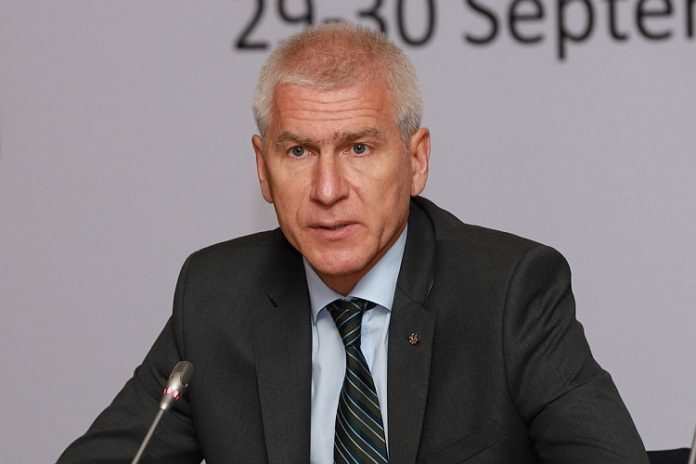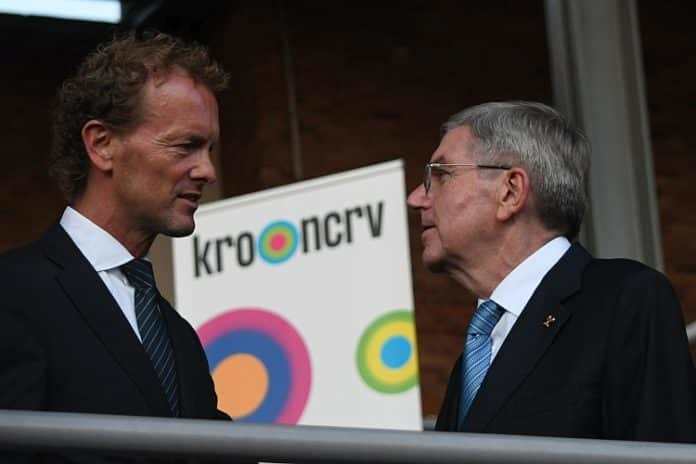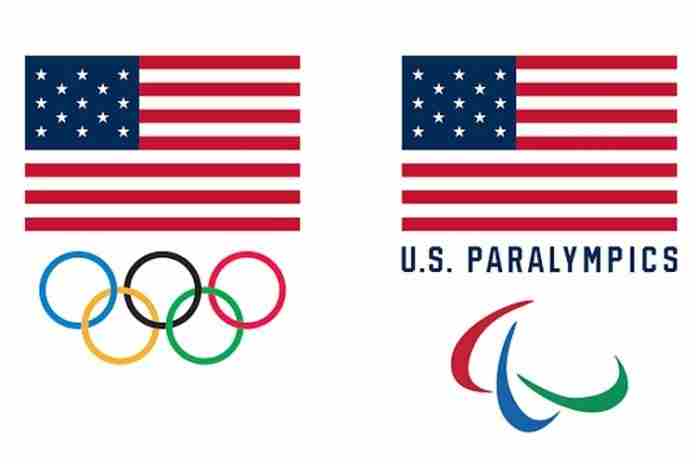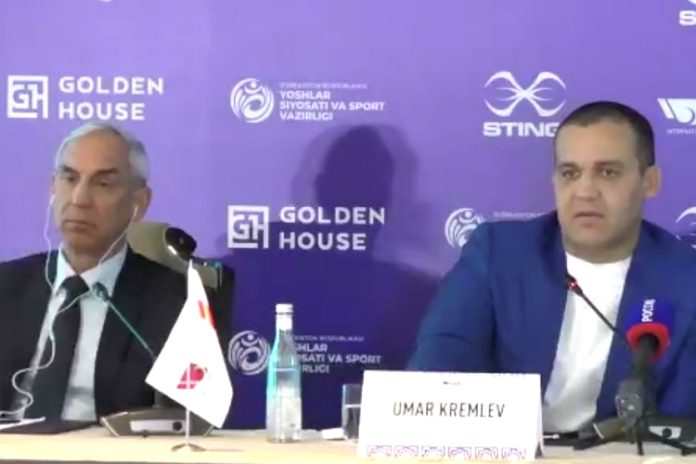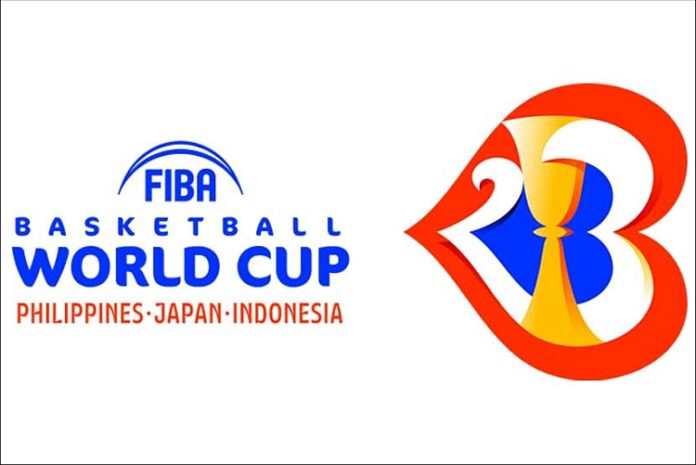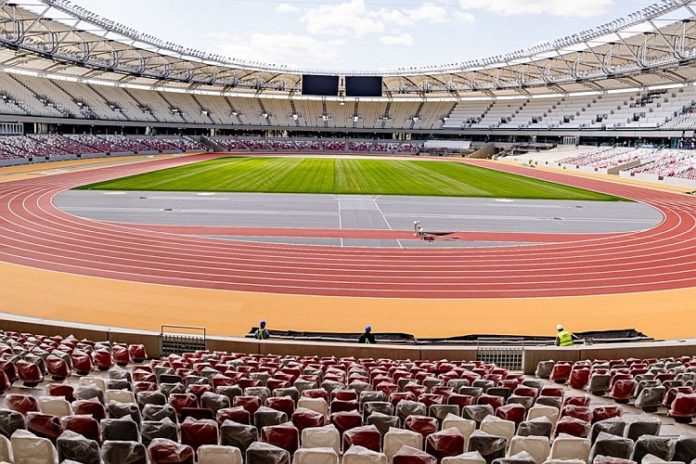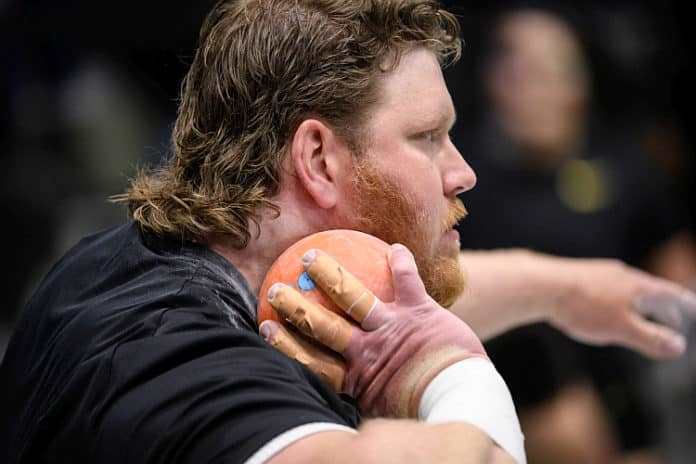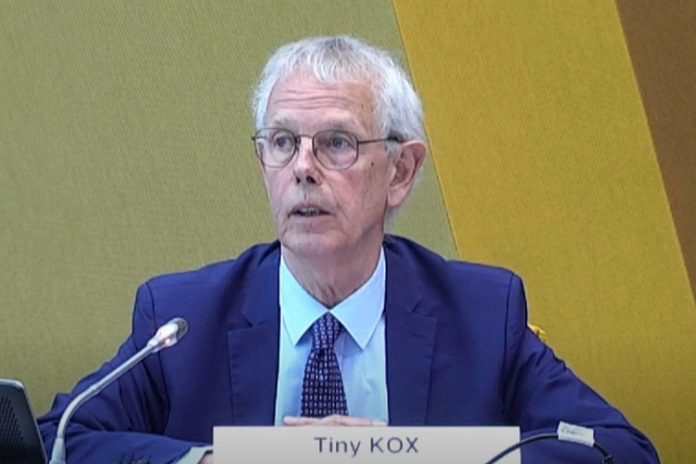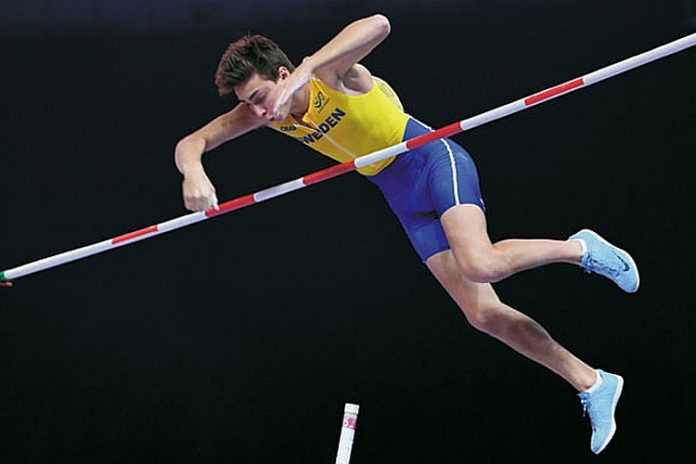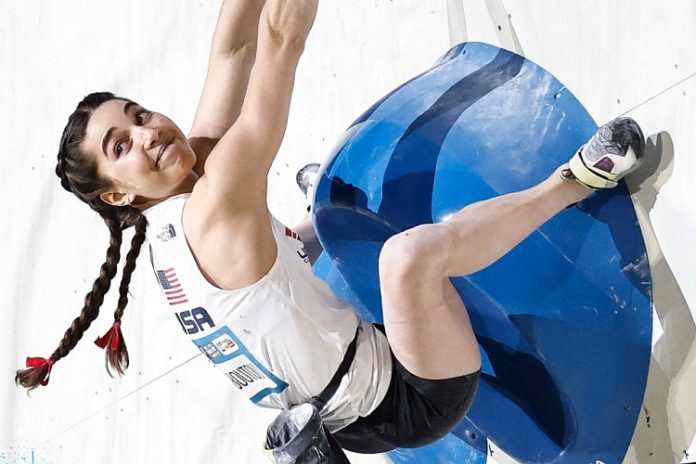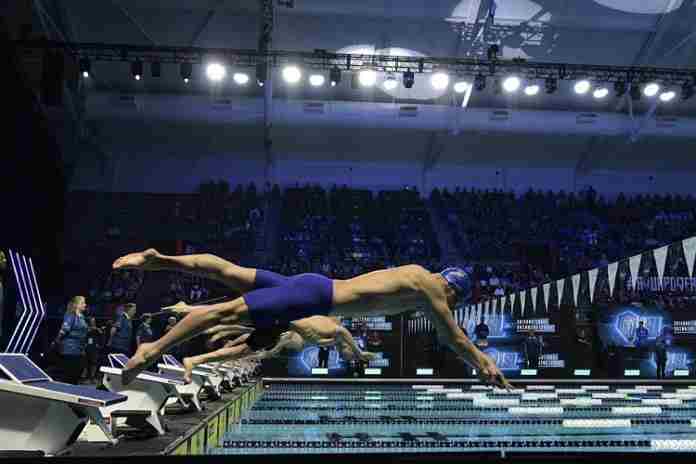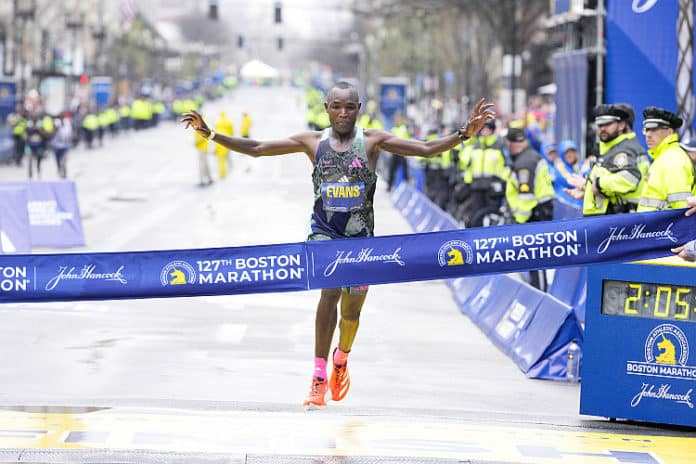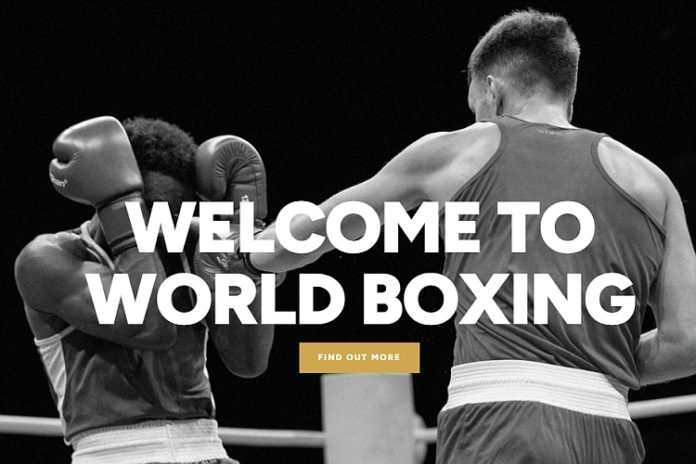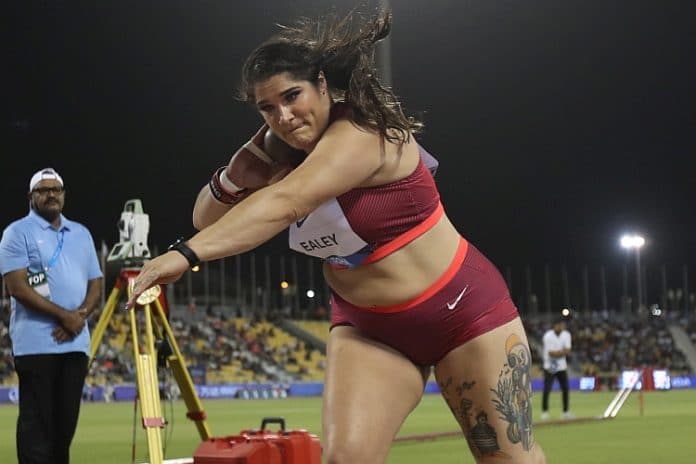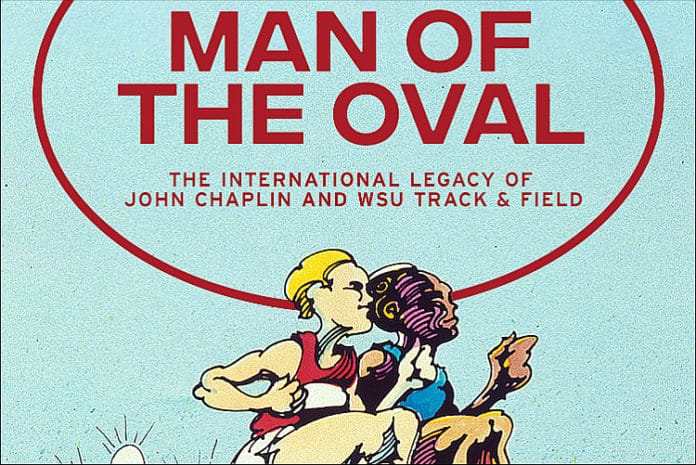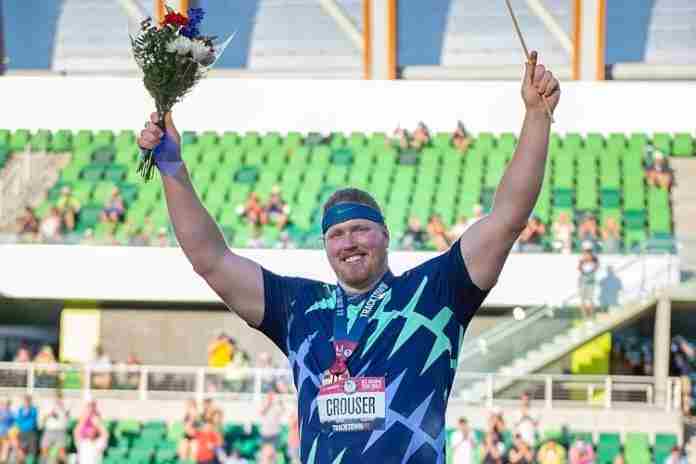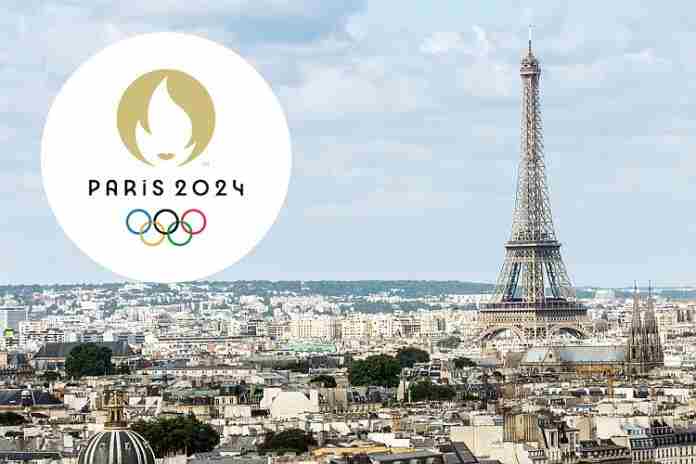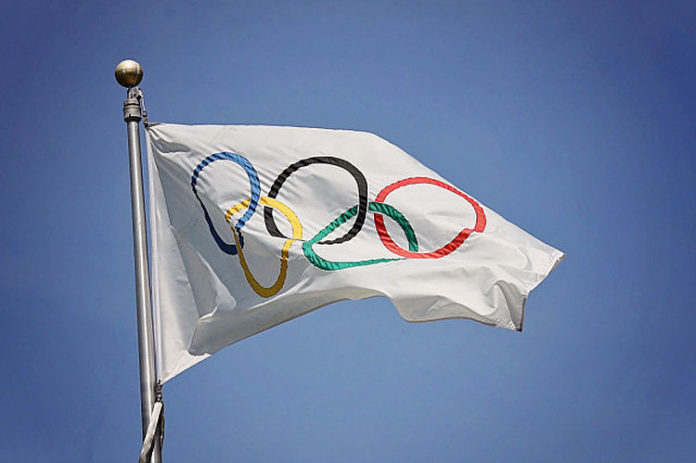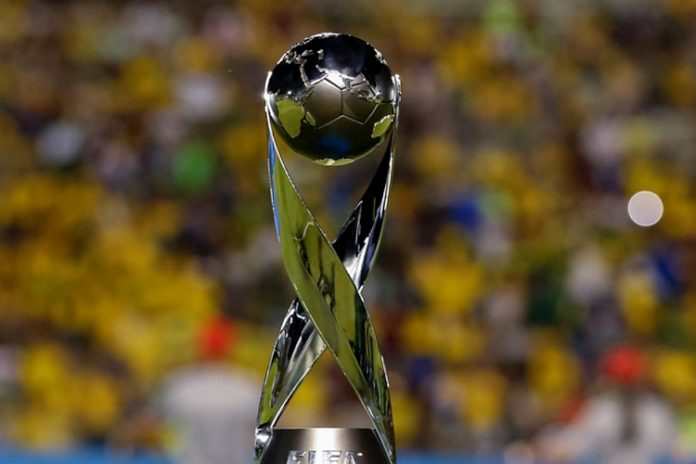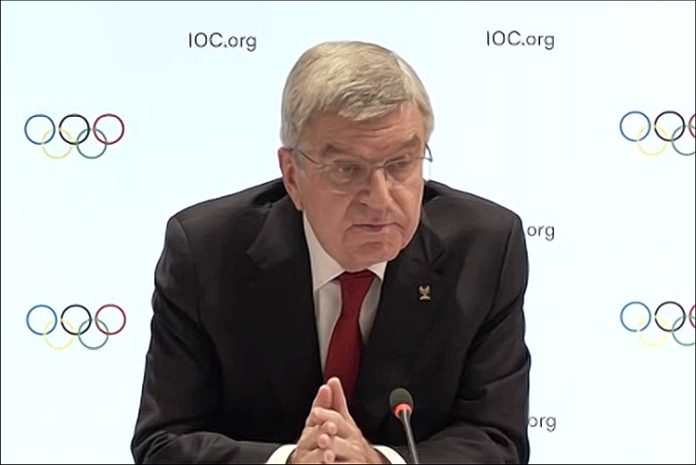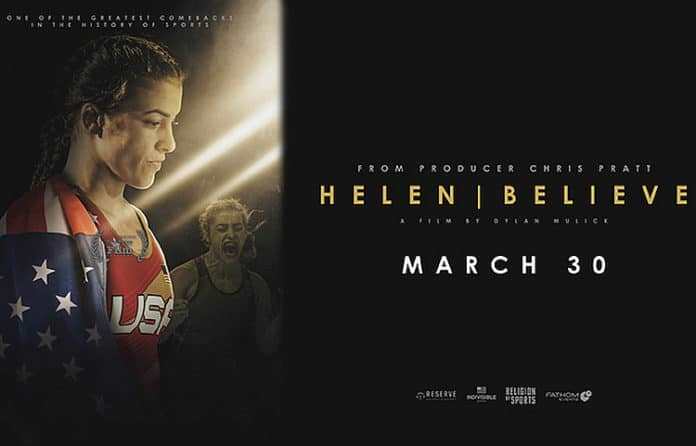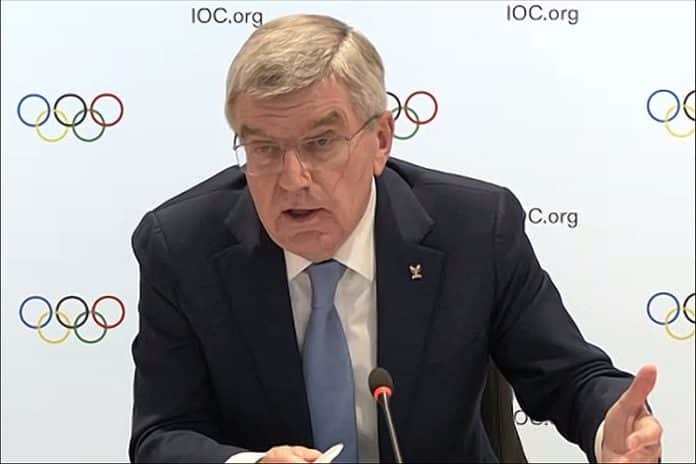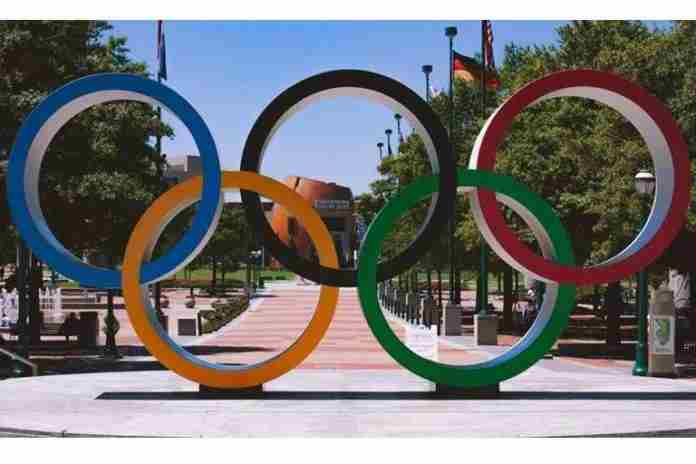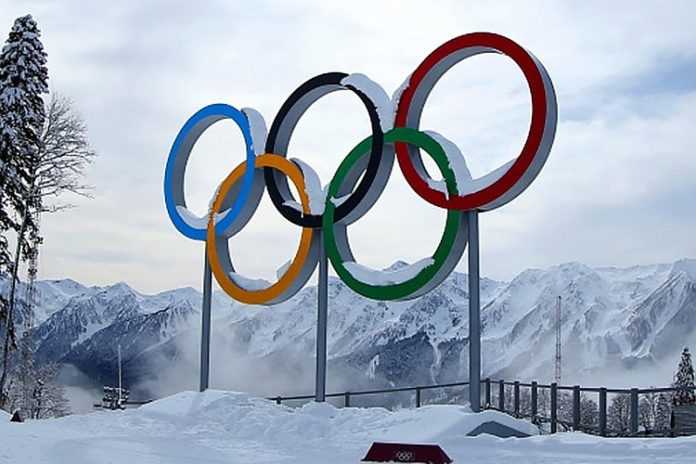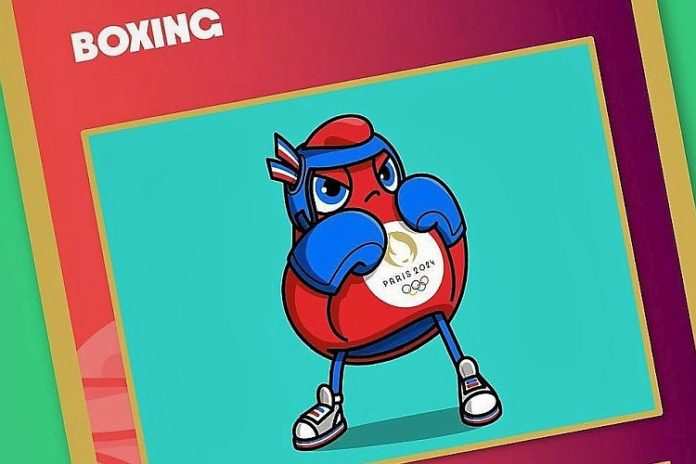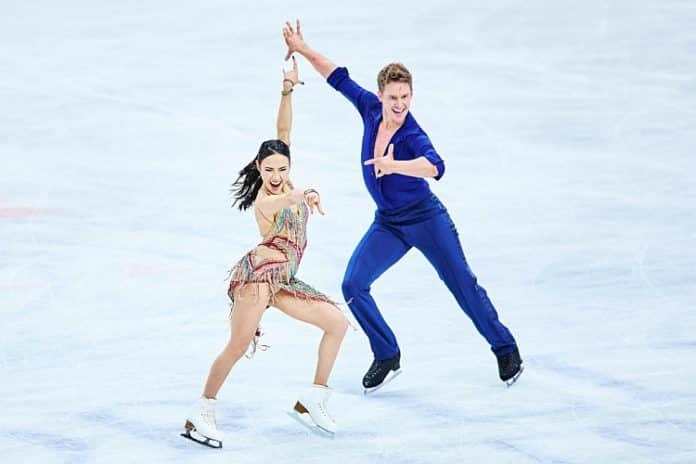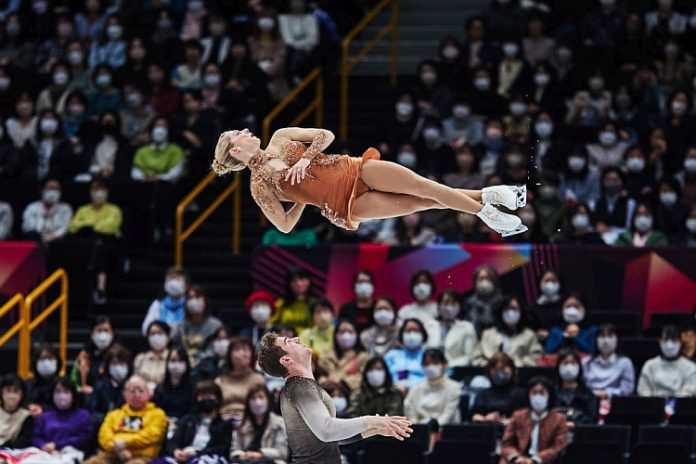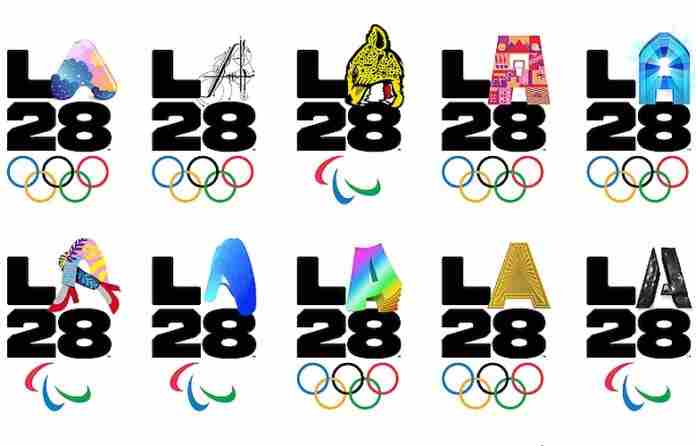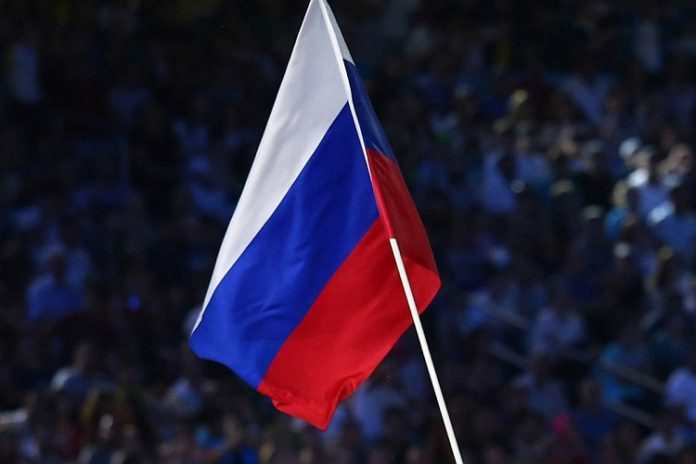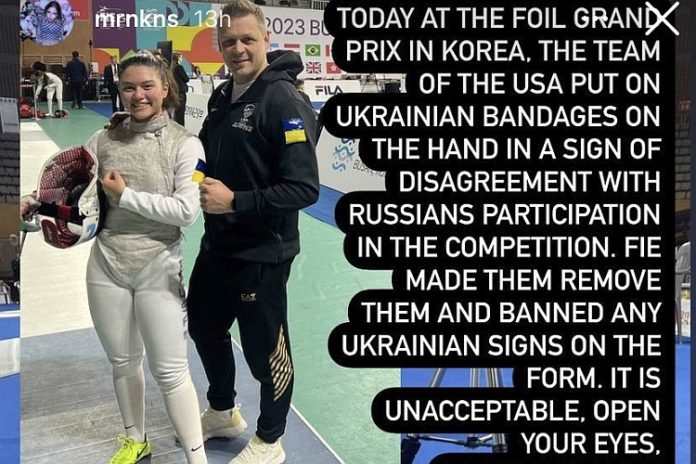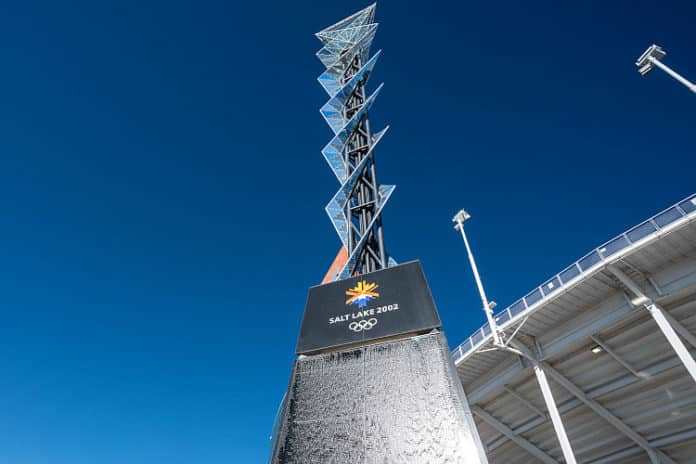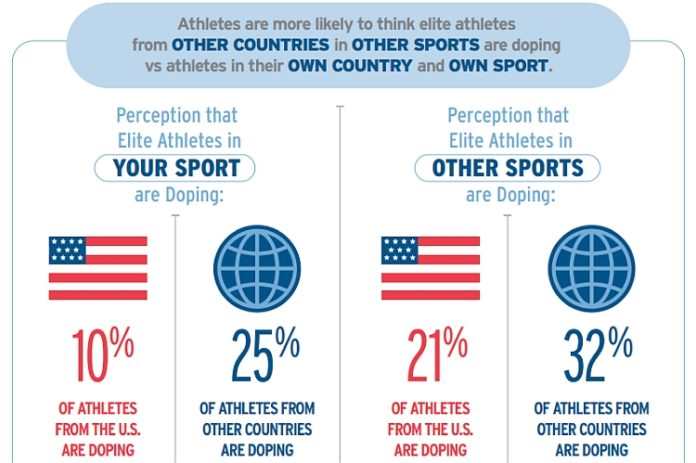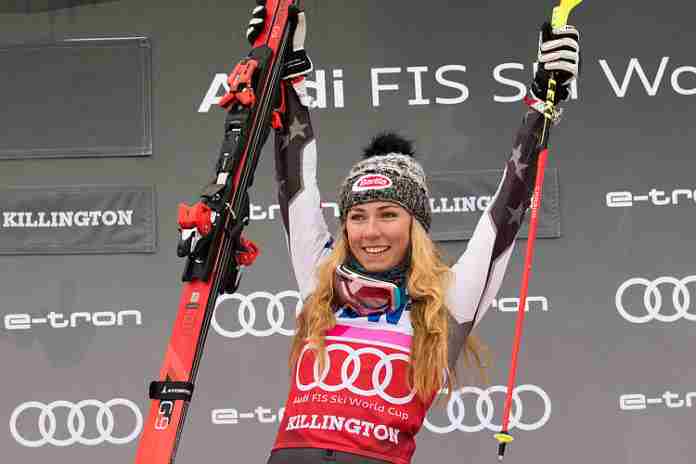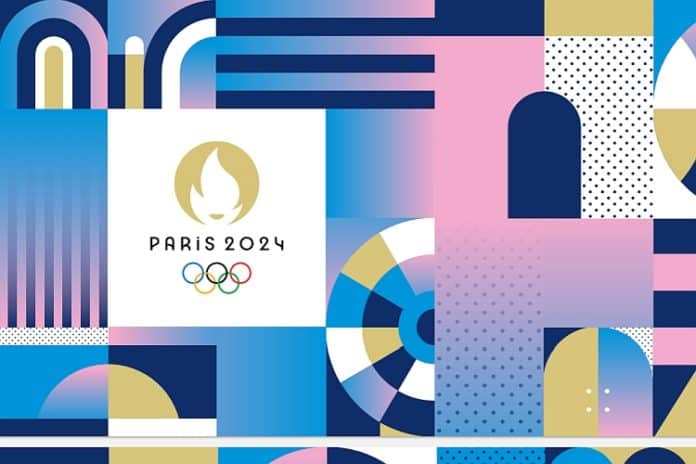★ The Sports Examiner: Chronicling the key competitive, economic and political forces shaping elite sport and the Olympic Movement.★
★ To get The Sports Examiner by e-mail: sign up here! ★
≡ THE 5-RING CIRCUS ≡
1. Pozdnyakov says Russians may refuse return under IOC guidelines
2. Russia’s Viner calls for Olympic alternative
3. NBC to show Paris 2024 live in daytime
4. Major football match-fixing probe on in Brazil
5. Two more Tokyo 2020 bribery convictions announced
A meaningful curveball from the International Fencing Federation, rejecting a half-dozen Russian Olympic and World medal winners from re-entering international competition, ostensibly because of their affiliation with the nation’s military. The head of the Russian fencing federation hinted that this could mean no Russians will participate at all and the head of the Russian National Olympic Committee echoed the sentiment. In a conference in St. Petersburg, the high-profile head of the Russian Rhythmic Gymnastics Federation called for an “Olympic alternative,” starting with countries that are part of the Shanghai Cooperation Organization, Commonwealth of Independent States and the BRICS group (Brazil-Russia-India-China-South Africa). NBC announced that it would show all Paris 2024 competitions live, meaning that swimming, gymnastics and athletics finals would be televised in the morning and afternoon in the U.S., followed by a prime-time highlights show. In Brazil, the government is now moving in on a match-fixing scandal in football, with the Goias state filing charges against seven players and nine gamblers involved in suspicious Serie A, Serie B and state championship games. Two more suspended sentences were handed out in the continuing Tokyo 2020 sponsorship bribery scandal, this time for ex-members of the ADK Holdings advertising agency. So far, five of the 15 defendants have received sentences, all of which have been suspended.
● World Championships: Judo (Japan and Georgia win again) ●
● Panorama: Paris 2024 (second phase of ticket sales starts) = World Games 2022 (State of Alabama could complete bailout) = Athletics (3: Simeoni’s Moscow gold stolen; Bou’s unrelenting run in the rain in Cambodia; two more 2012 Russian doping positives) = Cycling (Pedersen finally gets Giro d’Italia stage win) = Weightlifting (world records at Asian Championships) ●
● Errata: Some readers saw a version of Thursday’s post which wrongly stated that under Los Angeles Historic-Cultural Monument status, a property owner does not have to get special permission to change or demolish a protected building. If fact, special permission from the Cultural Heritage Commission is required. A correction has been made, with thanks to sharp-eyed reader Shirley Ito of the LA84 Foundation! ●
1.
Pozdnyakov says Russians may not return under IOC guidelines
The Federation Internationale de Escrime voted in March, in a special Congress, to allow Russian and Belarusian athletes to return to competition on a neutral basis based on the recommendations of the International Olympic Committee, which included not allowing athletes affiliated with the military.
On Thursday, the head of the Russian Fencing Federation, Ilgar Mammedov was told what that meant:
“We have received the list of Sabre-fencing athletes who the FIE has cleared to participate in international tournaments, and it contains no names that are familiar to the world of sports.
“One cannot see the names of [Tokyo Olympic champ Sofia] Pozdnyakova, [2016-2020 Olympic Team gold medalist Sofya] Velikaya, [Rio Olympic champ Yana] Egorian, [Tokyo Olympic Team gold medalist Olga] Nikitina, [World Team Champion Kamil] Ibragimov, [2013 World Champion Veniamin] Reshetnikov, nor the names of many other promising fencers.
“The explanatory note to the letter stated that it was based on recommendations issued by the International Olympic Committee, while the FIE is abstaining from making any comments of its own on the issue.
“We are now waiting for the list [of eligible athletes] in the Epee and Foil competitions, as well as for the list of medical, coaching and other specialist staff. Afterwards, we will convene for a general session in order to get an understating of what to do next.
“I’m against splitting the Russian national team into the good ones and the bad ones, into favorable and unfavorable athletes. We are all mature adults and we will exchange opinions and come to common terms.
“The opinion I have voiced is purely of my own and, once I have resigned from the post of [FFR] president and head coach of the national team, I would not want to hear any talk behind my back about how I had somehow ruined somebody’s life and blocked someone’s path to the world of major league sports.”
On the FIE Web site, Egorian, Ibragimov, Nikitina and Velikaya are all listed as an “Armed Forces Athlete.”
Russian Olympic Committee President Stanislav Pozdnyakov – father of Sofia Pozdnyakova – and himself a four-time Olympic gold medalist in fencing (Sabre), wrote on his Telegram channel on Thursday that Russia might just skip the whole program:
“If speaking about the sport of fencing in particular, I have repeatedly discussed with the national team’s members the proposed format for their return.
“I can say that none of them have ever considered or are considering now the previously proposed option of participating in international tournaments under the current restrictions.
“Our common stance remains steadfast: our fencers will participate only based on an equal footing with athletes representing other countries, without any contrived and illegitimate parameters and other artificial obstacles.”
That would be fine with Ukraine’s fencers, who will not compete in tournaments with Russian or Belarusian entries. And it leads to the question of whether the IOC’s recommendations will be seen as so strict as to cause Russia to boycott the Paris 2024 Olympic Games.
Kremlin spokesman Dmitry Peskov chimed in about the FIE’s decisions as well:
“We consider it to be absolutely wrong in view of attempts to force political guidelines upon athletes in order for them to participate in international competitions and we oppose such recommendations.”
Dmitry Svishchev, Chairman of the State Duma Committee on Physical Culture and Sports added:
“Such moves on behalf of the international federation [FIE] are a blow to the further development of the sport. It is not important who these athletes represent; what is important is that the decision is discriminatory.”
2.
Russia’s Viner calls for Olympic alternative
The Federation Internationale de Gymnastique (FIG) has maintained its competition ban on Russian and Belarusian athletes, restated in March of this year, and with no new position following the IOC’s 28 March recommendations on possible re-entry of “neutral” Russian and Belarusian athletes.
For Irina Viner, the President of the All-Russian Federation of Rhythmic Gymnastics, this is unacceptable. She told a legal forum held in St. Petersburg (RUS) on Thursday:
“Tashkent hosts boxing competitions, hundreds of countries participate in them, but the United States is not among them,” she noted, referring to the ongoing International Boxing Association men’s World Championships in Uzbekistan. The head of the IBA is Russian Umar Kremlev.
She then called for a change:
“Let’s make our own games, let’s hold alternative Olympic Games.
“The [Shanghai Cooperation Organisation], BRICS, the [Commonwealth of Independent States] are strong organizations that must agree that they will let and invite leading athletes here.
“So far they are afraid to do it, because the [gymnastics] federation secretly forbids [you] to participate in our competitions, and we in theirs. They say that security must be respected. This is not true: we have always been well received. No competition, no sport. If there are no competitors, the Olympic Games lose their meaning, and everything is coming to this.”
Russia’s Sports Minister, Oleg Matytsin, has said that Russia would offer to host a “BRICS Games” in 20204 in Russia if the other countries – led by China – were amenable.
Russian Olympic Committee chief Pozdnyakov told the Russian news agency TASS:
“The Russian Olympic family is about to make a difficult choice, which is being pushed by colleagues from Lausanne.
“Olympic solidarity is one of the main principles of Olympism. I am sure that all members of our sports community are fully committed to this principle, but those who interpret it too arbitrarily are highly likely to bear moral responsibility to their comrades, the country and history.”
3.
NBC to show Paris 2024 live in daytime
“Every day, NBC will provide Olympic fans with at least nine hours of daytime coverage of the Summer Games’ most exciting events, including live finals coverage of swimming, gymnastics, track & field, and more. With Paris six hours ahead of the United States’ eastern time zone, the daytime takeover will feature that day’s most popular events live on NBC in the morning and afternoon. Paris 2024 will have more programming hours on the NBC broadcast network than any previous Olympics.”
Thursday’s first announcement on NBC’s planned coverage is good news for American Olympic fans for next summer’s Paris 2024 Games, with no waiting to see the major events until the evening. A three-hour prime-time show is still planned for NBC at night.
NBC’s Peacock service will also provide a full view of the Paris Games, according to Thursday’s announcement:
“In a Summer Games first, the service will stream every sport and event, including all 329 medal events, and will feature full-event replays; all NBC programming; curated video clips; virtual channels; exclusive original programming; and more.”
NBCUniversal will also have heavy Spanish-language coverage on its Telemundo network, with a special emphasis on soccer, with added coverage on its Universo cable channel.
There will be more programming on USA Network, E!, CNBC and the GOLF Channel, to be announced later.
Paris 2024 will be crucial Games for NBC, the IOC and the U.S. Olympic and Paralympic Committee, as U.S. ratings have dropped precipitously, to a reported 15.6 million in prime time for the Tokyo Games in 2021, albeit in a difficult time zone for American viewers. Strong ratings in 2024 would set the stage for a blockbuster 2028 Games in Los Angeles, important for both the USOPC and for the LA28 organizers.
4.
Major football match-fixing probe on in Brazil
A major probe into match-fixing in Brazil broke open on Wednesday, with Justice and Public Security Minister Flavio Dino asking the Federal police to investigate a significant corruption problem that has seen at least 16 players from various teams suspended. He wrote on Twitter:
“Faced with evidence of manipulation of results in sports competitions, with interstate and even international repercussions, I am determining today that an Inquiry be instituted at the Federal Police for the legally applicable investigations.”
The Public Ministry of the central Brazilian state of Goias filed a complaint on Tuesday against 16 people for “competition manipulation” concerning 13 matches, of which eight were in the top-level Campeonato Brasileiro Série A, one in Serie B and four in state-level championships.
Of the 16 defendants, seven are players, from seven different teams, and nine are involved on the gambling end. A tupi.fm report noted (computer translation from Portuguese):
“In the document provided by the Public Prosecutor’s Office, the body reports 23 criminal acts that occurred during matches, in which players committed to committing fouls to receive cards and to cause penalties. The complaint brings, in more than 100 pages, read-outs of conversations and transcripts of audio recordings between the denounced that would prove the scheme.”
Additional matches are still being reviewed, and individual clubs have suspended another half-dozen players.
The Associated Press added, “Prosecutors said some of the athletes were paid between 50,000 and 100,000 Brazilian reals ($10,000 to $20,000) to get booked or give penalties to their rivals.”
5.
Two more Tokyo 2020 bribery convictions announced
The parade of guilty pleas and suspended sentences in the Tokyo 2020 sponsorship bribery scandal continued, with two ex-ADK Holdings executives receiving suspended sentences. According to Agence France Presse:
“Shigeharu Hisamatsu, a 64-year-old former executive at advertising firm ADK Holdings, received a sentence of 18 months, suspended for three years, a Tokyo District Court spokesman told AFP.
“His former assistant, 61-year-old Toshiaki Tada, was given a sentence of one year, also suspended for three years.”
Both were involved in a bribery scheme with former Tokyo 2020 Executive Committee member Haruyuki Takahashi to obtain organizing committee sponsors as clients, with the firm paying ¥14 million (about $104,068 U.S. today) to Takahashi.
ADK Holdings President Shinichi Ueno admitted the bribes, and is being tried separately. A total of 15 men from five companies have been indicted in the bribery probe so far; a separate prosecution is targeting a bid-rigging scheme for the Tokyo 2020 test events and Games-period venue management contracts.
Guilty pleas and sentences have been completed for five men so far, from business suit retailers Aoki Holdings (3) and now the ADK Holdings ad agency (2). Takahashi has not been tried and maintains his innocence: while he received money, he says it was for legitimate consulting work.
≡ WORLD CHAMPIONSHIPS ≡
● Judo ● Japan and Georgia won again at the 2023 IJF World Championships in Doha (QAT), with Niizone Saki winning her first individual world title in the women’s 70 kg class.
Saki had been part of Worlds team golds in 2017-21-22, and won an individual bronze in 2022. But this time she reached the final, impressively defeating two-time defending World Champion Barbara Matic in the semis and then Germany’s first-time finalist Giovanna Scoccimarro in the final.
Georgia’s Luka Maisuradze was the 90 kg Worlds bronze winner in 2022 and had earlier won a Worlds bronze at 81 kg in 2019. But this time he found himself in a finals battle against countryman Lasha Bekauri, the reigning Olympic champ! The battle was tight and the match went into overtime, with Maisuradze scoring a waza-ari to claim his first world title. It’s the second 1-2 for the same country in this year’s Worlds, after Japan’s Hifumi Abe and Joshio Maruyama made to the 66 kg final.
Individual competition continues through Saturday and the team event is on Sunday.
≡ PANORAMA ≡
● Paris 2024 ● The Paris 2024 organizers have begun the second phase of ticket sales, with about 1.5 million tickets available in this offer.
Unlike the first sale of ticket “packs,” tickets may be individually ordered for all events, including ceremonies. The sales are being conducted with buyers assigned to a specific, 48-hour time period via lottery; some four million accounts were opened.
Tickets range from €24 – about 10% of the total – to more than €1,000, depending on the event and the seat location. About 10% are priced at €200 or more. (€1 = $1.09 U.S. today)
Buyers can purchase up to 30 tickets in all, but not more than 4-6 for any individual event.
● World Games 2022: Birmingham ● The 2022 World Games in Alabama was aesthetically and athletically successful, but left a $14 million debt to be paid. That may be on the way to completion.
Last fall, the organizers asked and received $5 million from the City of Birmingham, $4 million from Jefferson County and $1 million from the Birmingham Convention and Visitors Bureau. That left $4 million or so and Governor Kay Ivey’s Alabama state supplemental appropriations list for the fiscal year ending 30 September from the Education Trust Fund includes $5 million for the World Games.
It’s part of a grant to the state’s Department of Commerce, among a series of programs to share $2.79 billion in spending, most of which is for school projects of various types. The budget request has now gone to the legislature, which must approve it.
● Athletics ● The 1980 gold medal for the women’s high jump, won by Italy’s Sara Simeoni, was stolen from her home in Rivoli Veronese, along with many other awards and trophies.
The thieves, who apparently overcame a home security system to break, did not take either of her Olympic silver medals from Montreal 1976 or Los Angeles 1984. Simeoni, now 70, said in a TV report of the stolen mementos, “It means years of training, sacrifices and renunciations, of choices. It is not easy to win a medal at the Olympics. It is the symbol of many wait, it means everything.”
The crime was reported to the police and an investigation is underway.
¶
Monday’s women’s 5,000 m race in the Southeast Asian Games in Phnom Penh (CAM) was held in a torrential downpour and won by Vietnam’s Thi Oanh Nguyen – who also later won the 1,500 m and Steeplechase – in an understandably slow 17:00.33.
Well behind the top nine were Cambodia’s Romdul Run in 10th at 21:27.08 and finally, running all alone, Cambodia’s Samnang Bou, in 22:54.22 (the video of her final 125 m is here). Her perseverance was loudly acknowledged by the small crowd and she responded and even waved her flag in response, while breaking into tears.
Cambodian Prime Minister Sen Hun said afterwards, “To encourage perseverance, I and my wife donate $10,000 to her.”
For context, the average annual household income in Cambodia in 2021 was $1,592. Wow.
¶
Two more Russian doping positives from 2012 were announced by the Athletics Integrity Unit, based on information from the infamous Moscow Laboratory information system and the inquiry by McLaren Global Sport Solutions into the Russian state-sponsored doping regimen from 2011-15:
● “[T]he AIU has banned Bogdan Pishchalnikov (Russia) for 4 years, from 20 March 2023, for the use of a Prohibited Substance/Method. DQ results from 15 July 2012 until 20 March 2023.”
● “Russian Aleksey Tovarnov has been banned for 2 years, from 30 June 2022, for the use of a Prohibited Substance/Method. DQ results from 4 July 2012 until 5 March 2015. This is a national decision.”
Pishchalnikov, 40, won seven Russian national titles in the discus and finished sixth at the Beijing 2008 Olympic Games and seventh at the 2009 World Championships in Berlin. His best was 67.23 m (220-7) from 2010, which will stand. He also competed in the London 2012 Olympics, with his last marks recorded in 2015.
Tovarnov, now 38, was the World Junior Champion in the javelin in 2004 and had a career best – before the sanction – of 82.54 m (270-9) in 2013, when he competed in the World Championships; he last competed in 2017.
● Cycling ● After a second and a third in the first week of the 106th Giro d’Italia, Danish sprinter Mads Pedersen finally got a win, screaming to the finish of the 162 km route that began and ended in Naples on Thursday.
There were two significant climbs in the first half of the race, and a breakaway group of five piled up a lead of five minutes after the first 50 km. But only Simon Clarke (AUS) and and Alessandro De Marchi (ITA) were strong enough to stay in front, but were shedding time after the 130 km mark.
Still, they held on and were only passed by the peloton with about 200 m to go, with Pedersen across first in 3:44:45, ahead of Jonny Milan (ITA) and Pascal Ackermann (GER). De Marchi ended up 88th and Clarke was 89th.
With the top 89 receiving the same time, there was no change in the leaderboard, with Andreas Leknessund (NOR) maintaining his 28-second edge on Remco Evenepoel (BEL) and 30 seconds on Aurelien Paret-Peintre of France.
Stage 7 will be a tougher test, on a 218 km ride from Capua to the Gran Sasso d’Italia, with an uphill climb to the finish over the final 45 km!
● Weightlifting ● The Asian Weightlifting Championships are coming to a close in Jinju (KOR), with China leading the medal table as expected. Along the way, the record book has been rewritten in two divisions.
In the men’s 89 kg class, China’s reigning World Champion Dayin Li lifted a combined total of 396 kg to add one kg to the 395 kg lifted by Bulgaria’s Karlos Nasar in Yerevan (ARM) on 20 April of this year.
Li set a Snatch world mark of 180 kg, while teammate Tao Tian took the Clean & Jerk mark from Nasar as well, lifting 222 kg to Nasar’s 221. Tian won the overall silver at 387 kg.
In the women’s 71 kg division, Chinese star Guifang Liao, the 2019 World Junior Champion, swept to the Asian title, lifting a world combined-lifts record of 268 kg, bettering the 2018 mark of 267 kg by fellow Chinese Wangli Zhang.
Liao also took the Snatch at 120 kg, another world record, improving the 119 kg by Romania’s Loredana Toma from the 2022 Worlds last December. Liao also won the Clean & Jerk at 148 kg, short of Zhang’s 2018 mark of 152 kg.
The Asian Champs continue through Saturday.
¶
You can receive our exclusive TSX Report by e-mail by clicking here. You can also refer a friend by clicking here, and can donate here to keep this site going.
For our updated, 651-event International Sports Calendar (no. 2) for 2023 and beyond, by date and by sport, click here!







